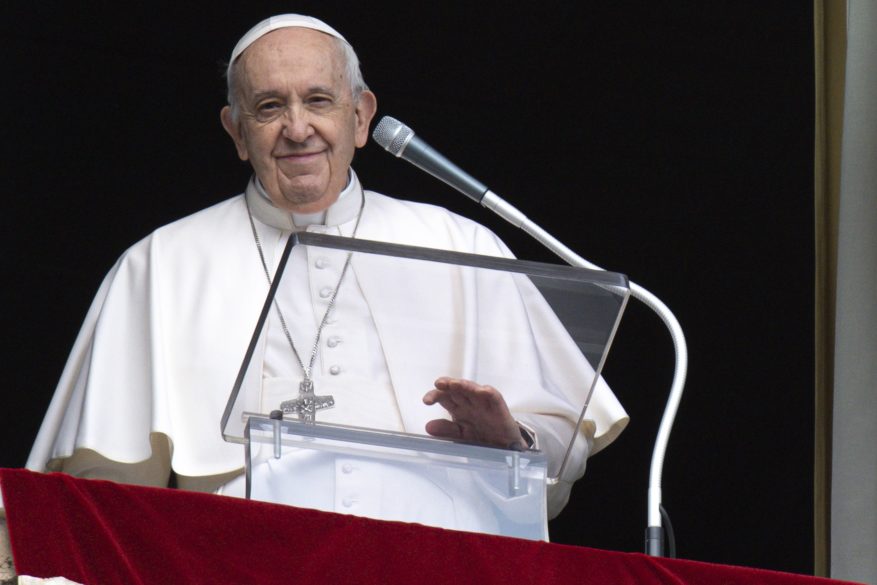By Carol Glatz
VATICAN CITY (CNS) – Positive change must begin with oneself and with acknowledging one’s own mistakes, Pope Francis said.
Such change also includes being attentive to how one communicates, because words carry weight and they can be used to “feed prejudices, raise barriers, harm and even destroy,” the pope told people gathered in St. Peter’s Square Feb. 27 for his Sunday Angelus address.
“Especially in the digital world, words travel fast; but too many of them convey anger and aggression, feed false news and take advantage of collective fears to propagate distorted ideas,” he said.
“Every fruitful, positive change must begin from ourselves. Otherwise, there will be no change,” he said.
The pope reflected on the Sunday Gospel reading from St. Luke, in which Christ asks his disciples, “Why do you notice the splinter in your brother’s eye, but do not perceive the wooden beam in your own?”

“What Jesus says is true: we always find reasons for blaming others and justifying ourselves,” Pope Francis said. “And very often we complain about things that are wrong in society, in the church, in the world, without first questioning ourselves and without making an effort to change ourselves first.”
Jesus asks people “to look within ourselves to recognize our failings. Because if we are not capable of seeing our own defects, we will always be inclined to magnify those of others,” he said.
When individuals acknowledge their own mistakes and flaws first, he said, “the door of mercy opens up to us,” providing a chance to experience God’s love and forgiveness.
Then, he said, “Jesus invites us to look at others as he does,” which is to “not see irredeemable errors in us, but children who make mistakes.”
“We know that God always forgives. And he invites us to do likewise: not to look for evil in others, but good,” he said.
It is important people be attentive to the way they speak because “you can tell straightaway what is in their heart” by the words they choose, he said.
Pope Francis asked people to reflect on whether they choose words that “express care, respect, understanding, closeness, compassion or words that aim mainly to make us look good in front of others? And then, do we speak mildly, or do we pollute the world by spreading venom: criticizing, complaining, feeding widespread aggression?”
“Jesus invites us to reflect on the way we look (at others) and the way we speak” and to purify “our gaze and our speech,” he said.
